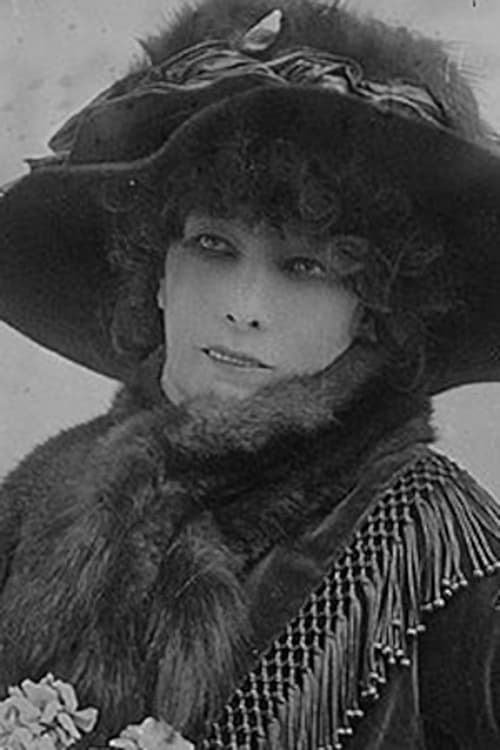Sarah Bernhardt
Nacimiento : 1844-10-23, Paris, France
Muerte : 1923-03-26
Historia
Sarah Bernhardt (born Henriette-Rosine Bernard, 22 or 23 October 1844 – 26 March 1923) was a French stage actress who starred in some of the most popular French plays of the late 19th and early 20th centuries. She also played male roles, including Shakespeare's Hamlet. French poet and dramatist Edmond Rostand called her "the queen of the pose and the princess of the gesture", while Victor Hugo praised her "golden voice".
Bernhardt made several theatrical tours around the world, and was one of the first prominent actresses to make sound recordings and to act in motion pictures.
From Wikipedia, the free encyclopedia

Self (archive footage)
Remarkable life story of Henri Diamant-Berger, a director and screenwriter whose devotion to cinema led him to collaborate with some of the greatest actors and filmmakers of his time.

Self (archive footage)
As the title of this French documentary indicates, Ce Siecle a 50 Ans examines the 20th Century at its halfway point. Utilizing the archives of several European film reserves, director Denise Tua offers a fascinating mosaic of the people and events that shaped the years 1900 to 1950. Complementing the vintage film clips are three dramatized sketches, delineating the romantic customs of three different points in time. These sketches are inadequately performed, and can easily be ignored. Ce Siecle a 50 Ans both preserved and provided celluloid material for scores of future documentaries.

Self (archive footage)
Nicole Védrèss' chronicle of Paris from 1900 to 1914 is brought to life through the use of original material, all authentic, secured from more then 700 films belonging to public and private collections. A few of the celebrities of the time shown are Enrico Caruso, Sarah Bernhardt, and Maurice Chevalier.

(archive footage)
The House That Shadows Built (1931) es un largometraje, de aproximadamente 55 minutos de duración, de Paramount Pictures, hecho para celebrar el vigésimo aniversario de la fundación del estudio en 1912. La película fue una película promocional para expositores y nunca tuvo un teatro teatral habitual. lanzamiento. La película incluye una breve historia de Paramount, entrevistas con varios actores y clips de los próximos proyectos (algunos de los cuales nunca llegaron a buen término). El título proviene de una biografía del fundador de Paramount Adolph Zukor, The House That Shadows Built (1928), de William Henry Irwin.

Self
Stars of Yesterday documentary film.

Madame Gainard
Jean is thrown out of the house by his father, a remarried politician, out of jealousy for his friendship with his mother-in-law. He finds refuge at an artist's apartment. In the same building lives a famous fortune teller that the mother-in-law just happens to consult. With her help, Jean will be able to marry his young sweetheart and his father will solve his political troubles.

Story

Jeanne d'Urbex
A mother loses first her son and then her husband in the trenches of France during the First World War. She devotes herself to the French cause and to helping those wounded in the war.

Self
Documental hecho en 1915, en donde se intenta revindicar la imagen de los artistas e intelectuales franceses, haciendo contrapeso a la supuesta supremacía germana.

Jeanne Doré
Jeanne Doré becomes the accomplice of her son Jacques who unfortunately commits a crime to help his mistress, Fanny, find money.

Writer
A considered lost film from 1913

Adrienne Lecouvreur
A considered lost film from 1913

Queen Elizabeth I
Epsodes from the life of Elizabeth I, Queen of England (1533-1603), focusing on her ill-fated love affair with Robert Devereux, Earl of Essex.

Marguerite Gauthier
Marguerite is a courtesan in Paris. She falls deeply in love with a young man of promise, Armand Duval. When Armand's father begs her not to ruin his hope of a career and position by marrying Armand, she acquiesces and leaves her lover. However, when poverty and terminal illness overwhelm her, Marguerite discovers that Armand has not lost his love for her.

Hamlet
The movie consists solely of a saber fight. Bernhardt plays a cross-gender Hamlet, and Pierre Magnier is her fellow duelist, Laertes. A few bystanders, in Rennaissance dress, stand off to the right of the screen, and in the background, next to a painted backdrop.

The Phono-Cinéma-Théâtre was a special pavilion at the 1900 Paris World's Fair which featured filmed performances presented with sound via wax cylinder recordings. Many of these short films were also presented in hand-tinted color. The performances ranged from theatre (Coquelin the eldest, Gabrielle Réjane, Sarah Bernhardt, Félicia Mallet), opera & operetta (Mariette Sully, Emile Cossira, Jeanne Hatto, Mily-Meyer, Désiré Pougaud), to café concert & music hall variety (Footit et Chocolat, Mason and Forbes, Little Tich, Brunin, Polin, Jules Moy) and dance (Blanche and Louise Mante from the Paris Opera, Carlotta Zambelli, Michel Vasquez, Rosita Mauri, Jeanne Chasles, Achille Viscusi, Christine Kerf, Cléo de Mérode).



